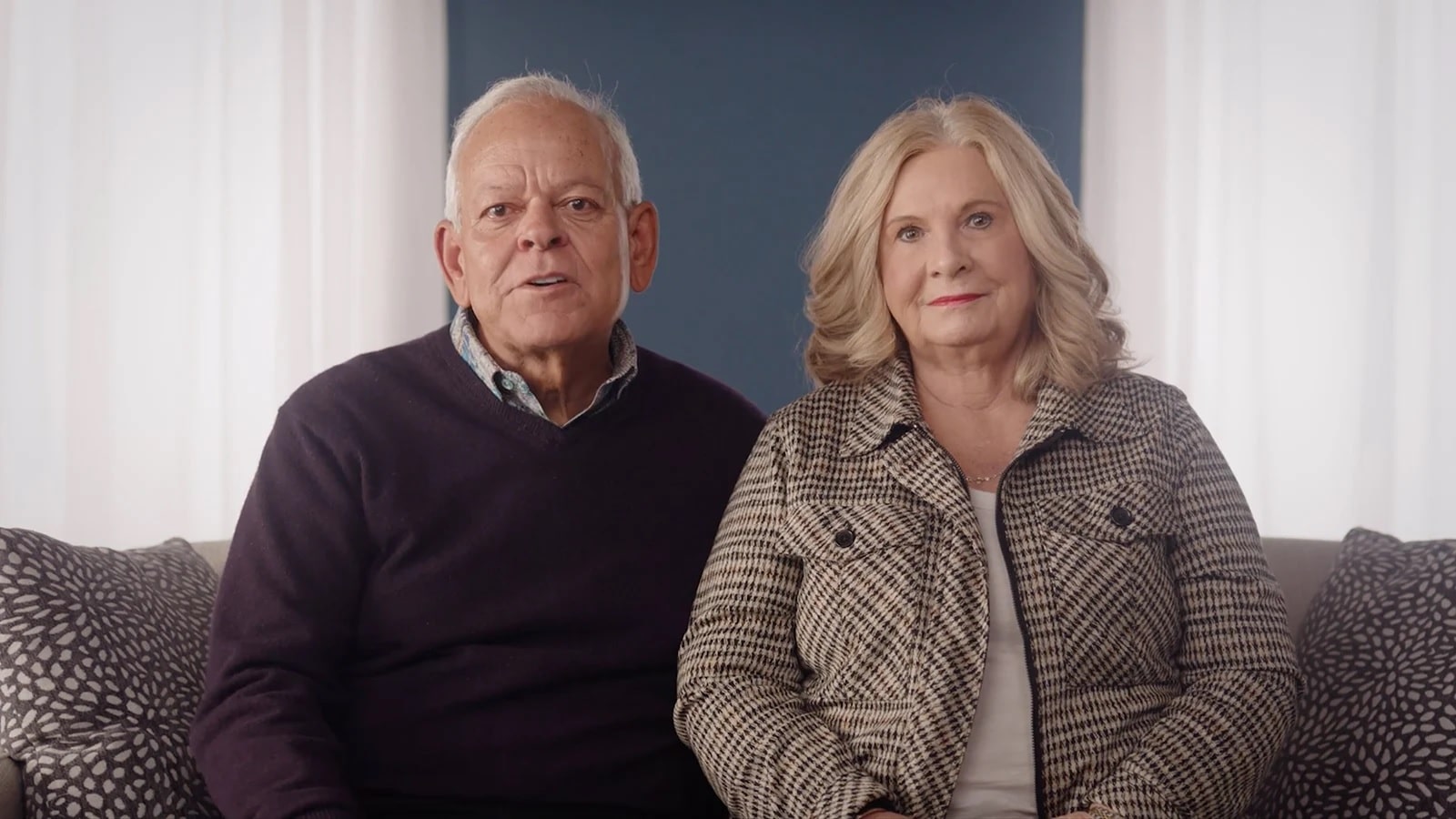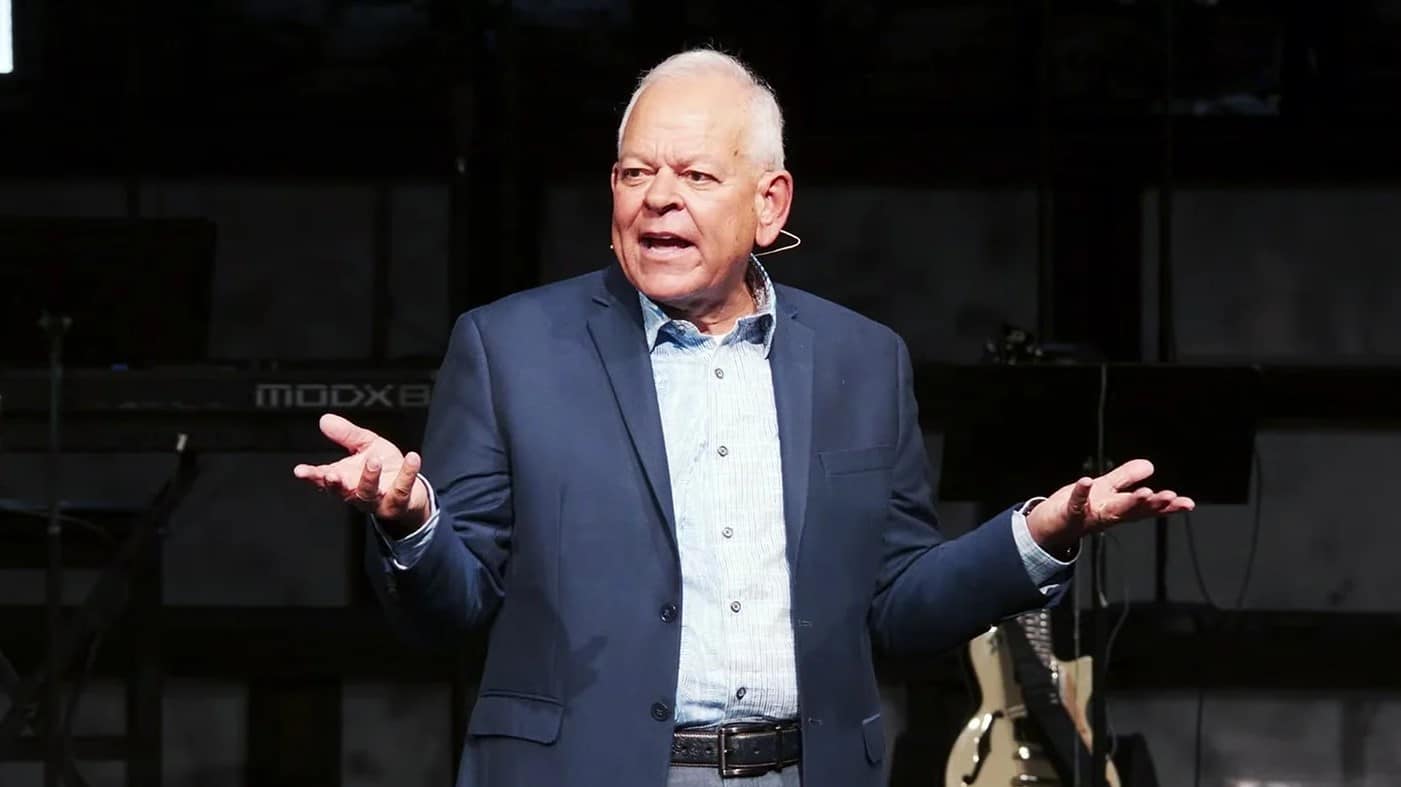The name Alisa Womack has become synonymous with courage and the relentless pursuit of justice within the Southern Baptist Convention, particularly in her pivotal role concerning former SBC President Johnny Hunt. Her decision to step out of the shadows, previously known only as "survivor" or "Jane Doe" in a landmark report, marked a significant turning point in a deeply sensitive and complex case that has reverberated throughout one of America's largest religious denominations.
This article delves into the intricate details of the allegations, the subsequent legal battles, and the profound implications of Alisa Womack's decision to speak publicly. It explores how her bravery, coupled with critical legal rulings, has helped to lighten a long-carried burden and set a precedent for transparency and accountability within religious institutions.
Table of Contents
- The Unveiling of Alisa Womack: Breaking Years of Silence
- The Allegations Against Johnny Hunt: A Pivotal 2010 Incident
- Johnny Hunt's Defamation Lawsuit: A Legal Battle Ensues
- The Legal Ruling: A Victory for Accountability
- Understanding the Broader Context: YMYL Principles in Action
- The Enduring Impact of the Alisa Womack Johnny Hunt Case
- Conclusion: A Call for Transparency and Justice
The Unveiling of Alisa Womack: Breaking Years of Silence
For years, she was known only as "survivor" or "Jane Doe" within the pages of the Guidepost Solutions report, a document that laid bare the pervasive issue of sexual abuse and institutional cover-ups within the Southern Baptist Convention (SBC). However, a significant turning point arrived when **Alisa Womack** chose to reveal her identity publicly. This decision was not made lightly; it was a direct consequence of a defamation lawsuit filed by former SBC President Johnny Hunt, which, as Womack herself stated, "required her to" step forward.
Her emergence from anonymity was a powerful act of reclaiming her narrative and demanding accountability. After years of silence, Alisa Womack began speaking publicly, sharing the profound emotional toll that the events of 2010 and the subsequent years of quiet struggle had taken. This public revelation was a testament to her resilience and a critical step in bringing a deeply personal and sensitive matter into the full light of public scrutiny. It underscored the immense pressure faced by survivors when legal proceedings necessitate their identification, transforming a private trauma into a public battle for truth and justice.
The Allegations Against Johnny Hunt: A Pivotal 2010 Incident
The core of the controversy surrounding **Alisa Womack Johnny Hunt** centers on an incident that allegedly occurred in the summer of 2010. During that period, Johnny Hunt, then a senior pastor of First Baptist Church in Woodstock, Georgia, and a highly influential figure within the Southern Baptist Convention, was invited to vacation in Florida. It was during this vacation that the alleged inappropriate behavior took place. Alisa Womack accused Johnny Hunt of sexual assault, a grave accusation that sent shockwaves through the SBC when it eventually came to light.
Johnny Hunt, a prominent Southern Baptist Convention pastor and former SBC president, later addressed the allegations. In an open letter to his former church, he admitted to "inappropriate behavior" with a woman in 2010. However, crucially, he denied that his actions constituted sexual assault. This distinction became a central point of contention in the ensuing legal and public discourse, highlighting the differing interpretations of the events and the gravity of the accusations. The incident, regardless of its legal classification, sparked a broader conversation about power dynamics, pastoral conduct, and the mechanisms for addressing abuse within religious organizations.
The Guidepost Solutions Report and Its Implications
The allegations against Johnny Hunt were brought to wider public attention through an independent investigation conducted by Guidepost Solutions. This comprehensive report, commissioned by the Southern Baptist Convention, detailed claims of "abuse" within the denomination, including the specific claim involving **Alisa Womack** and Johnny Hunt. The publication of this report was a watershed moment, forcing the SBC to confront long-standing issues of sexual abuse and the systemic failures that often allowed such incidents to go unaddressed or covered up.
The Guidepost report served as a crucial document, providing a factual basis for many of the claims that had previously been whispered or suppressed. Its findings were instrumental in pushing for greater transparency and accountability within the SBC. Importantly, the report itself became a target of legal action, yet its integrity and the information it contained were largely upheld. The report's detailing of Alisa Womack's account, even while she remained anonymous, laid the groundwork for the subsequent public and legal developments, making it a foundational piece in understanding the full scope of the **Alisa Womack Johnny Hunt** case.
Johnny Hunt's Defamation Lawsuit: A Legal Battle Ensues
Following the public release of the Guidepost Solutions report, former Southern Baptist Convention president Johnny Hunt initiated a defamation lawsuit. His legal action targeted Guidepost Solutions, the firm responsible for the investigative report that detailed Alisa Womack's accusations. Hunt's lawsuit aimed to clear his name and challenge the veracity of the claims made against him, particularly the assertion of sexual assault. This legal maneuver, while seemingly an attempt to control the narrative, inadvertently compelled Alisa Womack to reveal her identity, thereby escalating the public nature of the dispute.
Attorneys representing Guidepost Solutions and the firm fighting the defamation lawsuit responded by asking the court to dismiss the case. Their arguments centered on the protection of free speech and the public interest in the reporting of such sensitive matters, especially concerning figures in positions of power within large institutions. The legal battle became a critical test of whether independent investigations into abuse claims could withstand challenges from powerful individuals seeking to suppress or discredit their findings. The outcome of this lawsuit held significant implications not only for the parties involved but also for future efforts to expose and address abuse within religious and other organizations.
The Core of Hunt's Defense: Denial and Admission
Johnny Hunt's defense in the defamation lawsuit, and his public statements regarding the incident, were characterized by a complex blend of denial and admission. As noted, in an open letter to his former church, Hunt acknowledged engaging in "inappropriate behavior" with a woman in 2010. This admission, while significant, was carefully framed to deny the more serious accusation of sexual assault. His position was that while his actions may have been morally wrong or regrettable, they did not cross the legal threshold of sexual assault.
This nuanced defense aimed to mitigate the severe consequences associated with a sexual assault accusation while still addressing the undeniable fact that an incident occurred. The distinction between "inappropriate behavior" and "sexual assault" became a key point of contention, highlighting the differing perspectives and legal interpretations of the 2010 event involving **Alisa Womack** and Johnny Hunt. For many, Hunt's admission of "inappropriate behavior" was sufficient to confirm misconduct, regardless of his denial of the more severe charge, underscoring the importance of accountability for leaders within faith communities.
The Legal Ruling: A Victory for Accountability
A pivotal moment in the ongoing saga of **Alisa Womack Johnny Hunt** arrived on March 31, when a federal judge delivered a significant ruling. In Nashville, a federal judge ruled against former Southern Baptist Convention president Johnny Hunt, definitively rejecting his claims of defamation against Guidepost Solutions. This judicial decision was a monumental victory for Guidepost and, by extension, for the integrity of the independent investigation into abuse within the SBC. It essentially granted Guidepost a favorable judgment, shielding them from liability for their report, and similarly protected the SBC for releasing the report that detailed the claim of "abuse."
This ruling was critical because it affirmed the right and responsibility of independent investigators to publish their findings, even when those findings are uncomfortable or damaging to powerful figures. It reinforced the idea that transparency and accountability can prevail over attempts to silence or discredit victims and the organizations that investigate their claims. The judge's decision not only dismissed Hunt's defamation lawsuit but also sent a clear message about the legal standing of such reports in the public interest, paving the way for continued efforts to address and prevent abuse within large institutions.
Alisa Womack's Statement: A Burden Lifted
The legal ruling against Johnny Hunt had an immediate and profound impact on **Alisa Womack**. After Judge Campbell's ruling, Alisa Womack, who had previously been known as "Jane Doe," issued a powerful and deeply personal statement. In her statement, she conveyed that the ruling had helped to "lighten the burden she had carried for years." This sentiment encapsulated the immense emotional and psychological weight that survivors often bear, particularly when their experiences are challenged or when they are forced into public legal battles.
Her statement was a testament to the relief that can come from judicial validation and the affirmation of one's truth. For Alisa Womack, the ruling was not just a legal victory but a personal one, offering a measure of closure and vindication after enduring years of silence and public scrutiny. Her courage in identifying herself and speaking out, coupled with the favorable legal outcome, served as a beacon of hope for other survivors, demonstrating that it is possible to find justice and peace, even in the face of formidable opposition. The case of **Alisa Womack Johnny Hunt** thus became a powerful narrative of resilience and the pursuit of emotional and legal liberation.
Understanding the Broader Context: YMYL Principles in Action
The case involving **Alisa Womack Johnny Hunt** stands as a compelling example of why adherence to YMYL (Your Money or Your Life) principles is paramount in content creation, especially when dealing with sensitive topics. YMYL content pertains to subjects that could potentially impact a person's health, financial stability, safety, or well-being. The allegations of sexual assault, the subsequent legal proceedings, and the institutional response within the Southern Baptist Convention directly fall under this category. The information disseminated about this case has real-world implications for survivors, religious communities, and the broader public's understanding of justice and accountability.
Therefore, any discussion of this case demands the highest standards of E-E-A-T (Expertise, Experience, Authoritativeness, Trustworthiness). The information presented must be accurate, factual, and derived from reliable sources, such as official reports and court rulings, as provided in the initial data. Misinformation or biased reporting in such a context could cause significant harm, perpetuate trauma, or undermine trust in institutions. By focusing on the verified facts of the Guidepost report, Hunt's lawsuit, and the judge's ruling, this article aims to provide a trustworthy account that respects the gravity of the situation and the individuals involved, particularly Alisa Womack, who bravely came forward.
The Enduring Impact of the Alisa Womack Johnny Hunt Case
The legal and public battle surrounding **Alisa Womack Johnny Hunt** has left an indelible mark on the Southern Baptist Convention and, by extension, on the broader landscape of religious institutions in America. Beyond the individual parties involved, this case has served as a powerful catalyst for introspection and reform within the SBC. It has highlighted the urgent need for robust, transparent, and victim-centered processes for addressing allegations of abuse. The public nature of the lawsuit and the subsequent ruling against Hunt's defamation claims have reinforced the idea that even the most powerful figures within an institution are not above scrutiny or accountability.
The case has also contributed significantly to the ongoing conversation about survivor advocacy and the importance of believing and supporting those who come forward with allegations of abuse. Alisa Womack's decision to identify herself, despite the immense personal cost, has empowered others and underscored the collective strength found in shared experiences. Her story is a testament to the long and arduous journey many survivors face in seeking justice, often against formidable institutional and legal obstacles. The enduring impact of this case lies in its contribution to a growing movement demanding greater transparency, ethical leadership, and genuine care for the vulnerable within all organizational structures.
Lessons Learned and the Path Forward
The saga of **Alisa Womack Johnny Hunt** offers several critical lessons for religious organizations, legal systems, and society at large. Firstly, it underscores the necessity of independent investigations into allegations of abuse. The Guidepost Solutions report was crucial in bringing the facts to light, and the subsequent legal defense of its findings was vital. Secondly, it highlights the immense courage required for survivors to come forward, particularly when facing powerful individuals or institutions. Alisa Womack's journey from "Jane Doe" to public identification is a powerful narrative of resilience and the personal sacrifices made in the pursuit of truth.
Moving forward, the path for institutions like the Southern Baptist Convention involves continued commitment to systemic change. This includes implementing clear, compassionate, and effective reporting mechanisms for abuse, ensuring that survivors are heard and supported, and holding leaders accountable for their actions. The legal precedent set by the dismissal of Hunt's defamation lawsuit further strengthens the ability of journalists, researchers, and victims to speak truth to power without fear of undue retribution. The **Alisa Womack Johnny Hunt** case serves as a poignant reminder that true healing and progress can only begin when transparency and justice are prioritized above reputation and institutional protection.
Conclusion: A Call for Transparency and Justice
The story of **Alisa Womack Johnny Hunt** is more than just a legal dispute; it is a profound narrative about courage, accountability, and the arduous journey toward justice within powerful institutions. Alisa Womack's brave decision to step forward and reveal her identity, coupled with the federal judge's decisive ruling against Johnny Hunt's defamation claims, represents a significant victory for transparency and survivor advocacy. It has helped to lighten a burden carried for years, not just for Alisa Womack herself, but for countless others who have suffered in silence.
This case serves as a powerful reminder that no individual, regardless of their position or influence, is above scrutiny or beyond the reach of accountability. It reinforces the critical importance of independent investigations, the protection of those who speak truth to power, and the unwavering commitment to fostering environments where safety and integrity are paramount. As we reflect on the complexities of the **Alisa Womack Johnny Hunt** case, we are reminded of the ongoing need for vigilance, compassion, and a steadfast dedication to ensuring that justice is not merely an ideal, but a lived reality for all. We encourage readers to share this article to help spread awareness about the importance of accountability and to continue supporting efforts that champion the voices of survivors.



Detail Author:
- Name : Mark Herman PhD
- Username : kabernathy
- Email : dwehner@yahoo.com
- Birthdate : 2002-08-06
- Address : 86266 Oscar Fort Suite 149 New Winfieldport, DC 64441-0489
- Phone : +1-575-824-6721
- Company : Mante, Barton and Feest
- Job : Media and Communication Worker
- Bio : Quo sequi recusandae voluptatum qui inventore. Optio quis dicta ducimus quis. Voluptates animi harum ut nesciunt libero. Aut non distinctio totam ex. Corporis et expedita asperiores.
Socials
instagram:
- url : https://instagram.com/kulasr
- username : kulasr
- bio : Totam non vero officiis omnis. Nihil quam sed vitae officia delectus sint maxime.
- followers : 4126
- following : 110
linkedin:
- url : https://linkedin.com/in/romakulas
- username : romakulas
- bio : Ut qui reprehenderit omnis est.
- followers : 2588
- following : 363
twitter:
- url : https://twitter.com/roma_real
- username : roma_real
- bio : Voluptates corporis esse alias ratione. Voluptates magnam ea nam molestias labore alias. Corrupti voluptas facere aut ut mollitia eligendi explicabo eum.
- followers : 688
- following : 1156
tiktok:
- url : https://tiktok.com/@roma4677
- username : roma4677
- bio : Et officiis odit a blanditiis. Et vero laborum excepturi.
- followers : 1574
- following : 1224
facebook:
- url : https://facebook.com/roma8467
- username : roma8467
- bio : Repellat id qui veritatis qui labore aperiam totam sed.
- followers : 2221
- following : 733